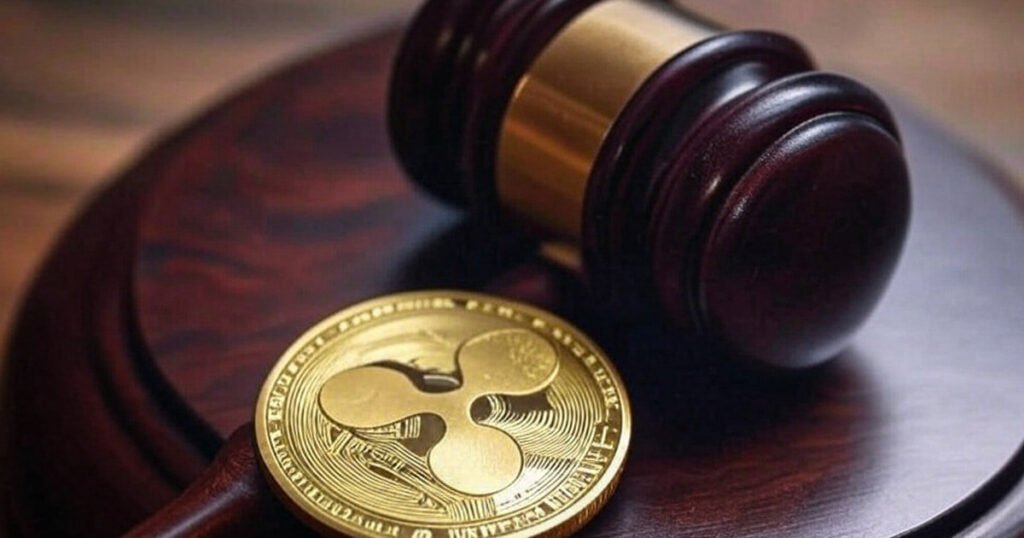Title: Ripple Labs and SEC Bid for Resolution: A New Chapter in Cryptocurrency Regulation
Introduction
The long-running legal saga between the U.S. Securities and Exchange Commission (SEC) and Ripple Labs is now poised for a significant resolution after both parties have jointly filed a motion to put their appeals on hold. This strategic move, filed with the United States Court of Appeals for the Second Circuit, stems from an agreement in principle that aims to settle the contentious case that has sparked debates on cryptocurrency regulation in the United States. The motion seeks to suspend litigation while finer details of the settlement are worked out, pending formal approval from the SEC.
Details of the Motion
The motion, submitted on April 10, places focus on the necessity to pause all proceedings regarding the case. It highlights a collaborative approach to settle not only the SEC’s appeal but also Ripple’s cross-appeal alongside claims against its executives, Brad Garlinghouse and Chris Larsen. Should the Court grant the motion, it would effectively halt the appeals process, eliminating deadlines for submissions previously set for April 16. Both parties express optimism that a settlement could lead to a clarity in legal standing surrounding XRP and its classification as a security.
Historical Context of the Legal Dispute
This case, which began with an enforcement action by the SEC in December 2020, stemmed from accusations that Ripple’s sales of XRP constituted unregistered securities offerings. A crucial judgment in July 2023 ruled partially against Ripple, stating that XRP sales to institutional investors breached securities laws while programmatic sales on secondary markets did not. This split ruling set the stage for the ongoing appeals, which have now been put on hold pending a resolution, marking a pivotal moment in the cryptocurrency industry.
Settlement Terms Await Approval
As part of the ongoing negotiations, Ripple has reportedly agreed to a civil penalty of $50 million and the dismissal of its cross-appeal. However, these proposed terms still await internal review and subsequent approval by the SEC. A successful resolution could pave the way for Ripple to seek an indicative ruling from the U.S. District Court for the Southern District of New York, the venue where the legal skirmish originally took shape. This prospect of a settlement underscores not just the desire for an end to litigation but also the need for regulatory clarity in the rapidly evolving digital asset landscape.
Implications of a Pause in Proceedings
The joint motion emphasizes the importance of conserving judicial and party resources during this negotiation phase. Both Ripple and the SEC have underscored that pausing the appeals process would not prejudice any parties involved, with all parties consenting to this step. Furthermore, the motion requests that the SEC submit a status report within 60 days following any stay ordered by the appellate court. This collaborative effort signals a potential shift in how regulatory bodies and cryptocurrency companies could engage moving forward.
Looking Ahead: The Future of Ripple and Cryptocurrency Regulation
With over four years of litigation now potentially coming to a close, the implications of this agreement could be far-reaching. Ripple has secured numerous legal victories while continuously contending that its operations are compliant with existing laws. This case not only looms large for Ripple but sets precedents for the broader cryptocurrency industry regarding regulatory expectations and classifications. As discussions progress and potential resolutions are formulated, the necessity for clear legislative guidance on the distinction between digital assets and securities becomes increasingly critical. The outcome of this legal battle may ultimately shape the future landscape of cryptocurrency regulation in the United States, fostering a more defined approach to digital asset governance.
Conclusion
The motion filed by the SEC and Ripple Labs signifies a collaborative step towards resolving their ongoing dispute, with substantial implications for the future of cryptocurrency regulation. As both entities work expediently to finalize settlement terms, the industry watches closely to understand how this landmark case will influence the regulatory environment for digital assets. Should this case conclude favorably, it could help clarify the legal status of cryptocurrencies, offering much-needed guidance for companies navigating this complex and evolving sector.


